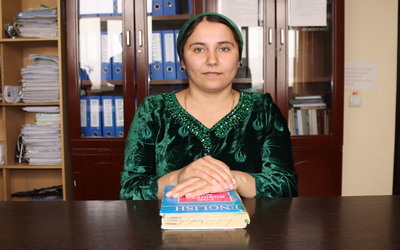Articles

Learning Languages A Path to Global Awareness and Success
Language is one of the most essential tools for human communication and interaction. Knowing one or more languages enables a person to gain insight into the successes and challenges, opportunities and issues, needs and realities of everyday life in society. A foreign language is not merely a means of communication it is also a mirror through which one can understand the culture, thinking, and worldview of another nation.
Many people see foreign languages solely as a tool to achieve personal or professional goals. While this perspective is partly true, language goes far beyond that. A foreign language can serve as a bridge of friendship and understanding between nations and cultures. It fosters connection, deepens mutual understanding, and brings people closer together.
The Founder of National Unity Leader of the Nation, President of the Republic of Tajikistan, His Excellency Emomali Rahmon, consistently emphasizes the importance of learning foreign languages in his speeches and messages. He highlights that our nation must stand alongside the global community and develop in step with other nations of the world.
It is important to note that keeping pace with the modern world is not limited to knowing technology or foreign languages. A deep understanding and awareness of one’s own national culture and traditions is also an inseparable part of this journey. Culture encompasses all the vital aspects of social life from worldview and way of thinking to customs, ethics, and public values. Mastering and internalizing culture is one of the main sources of personal development and a sign of intellectual maturity.
It is through the study of foreign languages that one gains access to not only the culture of their own people but also that of other nations. Such individuals are able to engage with the world, learn about other civilizations and perspectives, and develop a broader, more inclusive understanding of humanity. In this sense, languages are not just a means of communication they are a key to understanding the modern world and one’s own identity.
Today’s generation, raised during the era of Independence, differs significantly from previous generations in terms of knowledge, modern thinking, behavior, ethics, awareness, and worldview. This is a remarkable phenomenon and a source of national pride. During the years of independence, strong foundations have been laid in our country for the development of all areas of public life. Educational institutions and creative centers have been established, attracting hundreds of young people every year.
The primary goal of studying in such institutions is not only to acquire modern professions and specializations, but also to contribute to the promotion and expansion of cultural, linguistic, and spiritual values of the nation. Today, Tajik youth are pursuing higher education not only within the country, but also at prestigious international universities. This educated generation will, in the future, serve their homeland and nation with devotion, playing an active role in advancing key sectors from culture and science to economy and technology.
Fortunately, under the consistent and visionary leadership of the Founder of National Unity Leader of the Nation, President of the Republic of Tajikistan, His Excellency Emomali Rahmon, special attention is being paid to the learning of foreign languages. One such initiative is the “Program for the Improvement of Teaching and Learning of Russian and English Languages in the Republic of Tajikistan until 2030,” which was adopted by the Government of the Republic of Tajikistan on August 30, 2019, under decree number 438.
The main objective of this program is to strengthen the foundation for high-quality foreign language education, address existing challenges in the teaching system, and prepare qualified specialists. Through learning foreign languages, Tajik citizens especially youth gain broader access to the cultures, literature, and worldviews of other nations. This not only enhances individual knowledge, but also promotes the development of friendship and mutual understanding among nations.
Sobirova Adiba Ilhomiddinovna,
assistant of the Department of
foreign language

